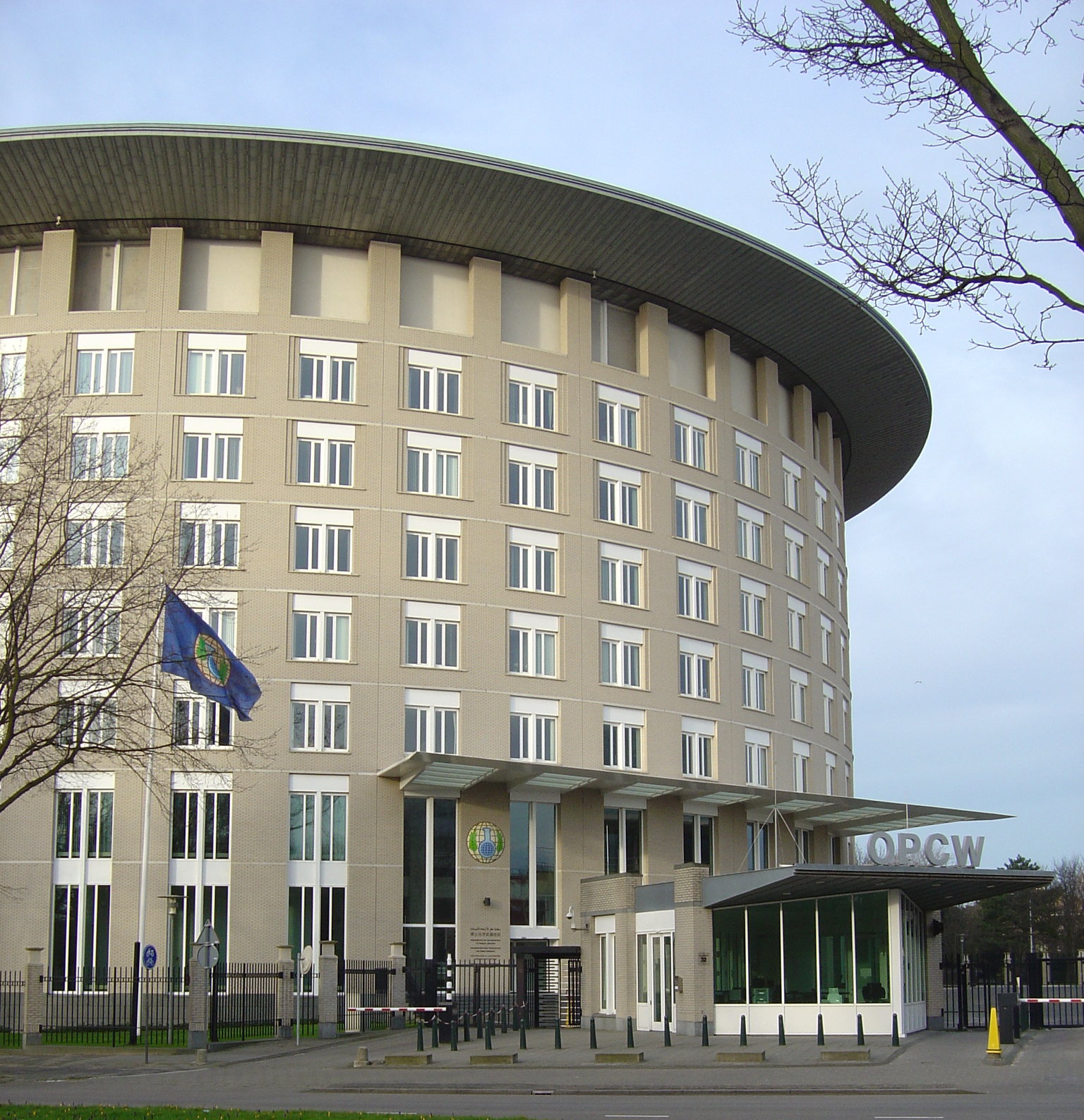
Introducing OPCW: the Organisation for the Prohibition of Chemical Weapons

One of the most exciting things we do at AMUN is choosing our Special Commission. Each year, we select a different United Nations body or organization to simulate and invite all delegations to seat a Representative on the body. This allows us to discuss issues that we can’t fully address in the General Assembly or our regular simulations. In 2017, our Special Commission will be the Organisation for the Prohibition of Chemical Weapons (OPCW).
OPCW is responsible for managing the Chemical Weapons Convention (CWC). The Organisation was founded in 1997 and is composed of the States Parties to the Chemical Weapons Convention. Much like the International Atomic Energy Agency, the OPCW is a technical organization. It deals with a number of scientific topics and establishes best practices for chemical usage. Its primary duties include the practical aspects of enforcing the CWC and growing the worldwide technical knowledge needed to prevent the creation and use of chemical weapons.
When the OPCW was first founded, it was a means to increase accountability. Its immediate goals were the functional reduction of chemical weapons. In the past twenty years, the organization’s work has become more long-term. Incidents of chemical weapons use have vastly declined, and the OPCW has shifted much of its focus to preventing the underlying issues that could lead to a resurgence in their use. The Organisation does this by increasing cooperation among members, regulating the industrial sectors and chemical components most likely to be used in creating chemical weapons.
Dismantling chemical weapons facilities has been the primary goal of OPCW since 1997. But the broader work of the organization has remained focused on increasing technological capacities within and information sharing among its members. It creates guidelines for transportation, works to encourage domestic education of scientists, and even looks at security issues like factories that are vulnerable to terrorism.
Moreover, the OPCW now has the ability to turn to humanitarian-focused issues, like securing medical access and support for chemical weapons victims, increasing awareness of chemical weapons use, and furthering its mission for universal membership.
OPCW’s Structure
So, let’s talk structure. The OPCW has three main organizational groups: the Executive Council, the Conference of the States Parties, and the Technical Secretariat.
The Executive Council is a small, focused group that manages high-level administration like budgets and looks at specific State actions. The Executive Council addresses compliance issues—like investigating the use of chemical weapons in Syria—and provides specific assistance to States Parties. Assistance includes creating action plans, conducting high-level assessments and coordinating the deconstruction of existing chemical weapons production facilities. The Executive Council also reviews and adopts reports written by the Technical Secretariat and the Conference of the States Parties and accepts applications for membership.
The Conference of the States Parties, which AMUN is simulating in 2017, is responsible for more widespread policy. The Conference of the States Parties works to foster cooperation between States, increase the technical capabilities of States Parties, and enforce and facilitate full adoption of the CWC. It releases reports regularly advising States and the Executive Council on how to fully implement a CWC. More relevant for our upcoming simulation, the Conference of the States Parties also releases what it calls decisions—think resolutions wearing a different hat—in which the Conference recommends policy.
The final group is the Technical Secretariat. The Technical Secretariat is the bridge between the Executive Council, the Conference of the States Parties, and OPCW members. The Technical Secretariat coordinates policy implementation, inspects members’ compliance with the CWC, and monitors chemical weapons stockpiles. Their work is done by highly trained experts and technocrats.
The OPCW has many facets. Each branch focuses on its own purview, but overall, it has been highly successful in combating chemical weapons production and use. With almost universal membership, the OPCW has been able to decrease stockpiles of chemical weapons worldwide and is prepared with the infrastructure to combat many future problems. Its current work creating support networks for victims, increasing access to education about chemical weapons, and assisting domestic legislation and international cooperation are creating an increasingly safe world.
Keep Up With The Accords
More to read
The AMUN Accords is a premier resource for fact-based Model United Nations simulations. We are always looking for new contributors. Want to write for the AMUN Accords? Check out out the submission guidelines and then get in touch!




